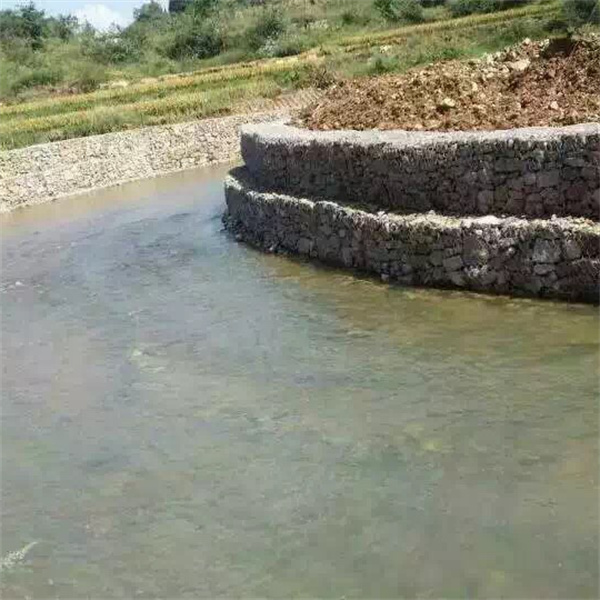Dec . 26, 2024 13:06 Back to list
Gabion Suppliers and Their Pronunciation Guide for Easy Reference
Understanding Gabions and Their Suppliers
Gabions are wire mesh containers filled with rocks, concrete, or other materials used for various applications, including erosion control, slope stabilization, and decorative landscaping. As versatile and effective structures, gabions have gained popularity in construction and landscaping projects worldwide. This article takes a closer look at gabion pronunciation, their functionality, and how to choose the right suppliers.
What are Gabions?
The term gabion is pronounced as /ˈɡeɪ.bi.ən/, derived from the Italian word gabbione, meaning large cage. Traditionally, gabions were used in civil engineering projects for retaining walls and flood control due to their ability to absorb shock and withstand hydraulic pressures. Their design allows water to flow through the stones, reducing the pressure that builds up behind a solid wall.
In landscaping, gabions are often utilized as decorative elements. Filled with natural stones, they can create visually appealing garden borders, benches, and raised beds while providing functionality, such as erosion control. The aesthetic versatility of gabions allows them to blend seamlessly with various landscape designs, from modern to rustic.
Benefits of Using Gabions
1. Environmental Benefits Gabions are often constructed using natural materials, making them an eco-friendly option compared to traditional concrete structures. They allow for better water drainage and filtration, promoting healthier ecosystems by reducing erosion and sediment runoff.
2. Durability and Strength Gabions are designed to be durable and can withstand harsh weather conditions. The wire mesh is typically galvanized or coated to prevent rust, ensuring longevity. When filled correctly, gabion structures can resist significant forces without collapsing.
3. Cost-Effective Compared to other retaining wall systems, gabions can be a more economical choice. The materials used in filling these cages can often be sourced inexpensively, especially if local stone is utilized, reducing transportation costs.
4. Ease of Installation Gabions can be relatively easy to install. They are often delivered flat-packed, allowing for simple assembly at the site. Once filled, they can be stacked and shaped to meet specific project requirements.
gabion pronounce suppliers

Finding and Choosing Gabion Suppliers
When looking for suppliers for gabions, consideration of several factors can aid in making an informed decision
1. Reputation and Experience Look for suppliers with a history of quality service and experienced staff. Reading customer reviews and testimonials can provide insight into their reliability and product quality.
2. Product Range Quality suppliers should offer a variety of gabion types, including different sizes, shapes, and wire mesh specifications. This variety ensures you can find the right gabion for your specific project needs.
3. Custom Solutions Some projects may require custom-sized gabions or specific materials. Suppliers that can accommodate such requests are often more capable of meeting unique needs.
4. Material Quality Confirm that the materials used for the wire mesh and fillers are of high quality. Strong, corrosion-resistant mesh is crucial for the longevity of the structure, while solid, well-graded stones ensure structural integrity.
5. Technical Support Good suppliers should also provide technical support to help you determine the best gabion solutions for your project. They can offer advice on installation techniques and design specifications.
6. Pricing and Delivery Finally, consider pricing and delivery options. While cheaper options might be tempting, it is essential to balance cost with quality. Confirm delivery timelines to ensure your project stays on schedule.
Conclusion
Gabions are an innovative and effective solution in various construction and landscaping applications. Their durability, environmental benefits, and aesthetic appeal make them a popular choice for maintaining and enhancing outdoor spaces. Understanding gabion pronunciation, their advantages, and the criteria for selecting suppliers can help you make informed decisions for your next project. With the right guidance, gabions can serve both functional and decorative purposes, contributing to sustainable and resilient designs.
-
hesco-gabion-baskets-for-coastal-erosion-prevention
NewsAug.22,2025
-
longevity-and-durability-of-river-rock-gabion-walls
NewsAug.22,2025
-
how-to-integrate-gabion-3d-walls-in-urban-planning
NewsAug.22,2025
-
reno-mattress-gabion-applications-in-civil-engineering
NewsAug.22,2025
-
how-to-install-wire-mesh-for-gabion-baskets-properly
NewsAug.22,2025
-
best-materials-for-filling-a-chain-link-gabion
NewsAug.22,2025
-
Wire Mesh Thickness Impact on Gabion Wall Load Bearing
NewsAug.12,2025






